Belonging: A Mission for EDI Leadership
We’re excited to kick off this academic year by promoting and supporting the theme of belonging. As uncertain times loom, the EDI Committee is here as a resource to help you maintain a sense of agency and support. Never forget, you belong here.
We’re also excited to introduce three new people to our leadership team, Daanya Siddiqui (student co-chair), and Elsie Rochleau (EDI Student Assistant), and Rabi Yunusa (faculty co-chair). You can learn more about our EDI leadership team, and what belonging means to them below.
Daanya Siddiqui
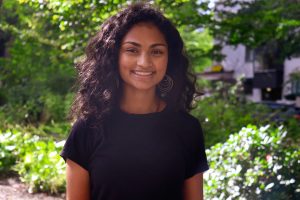
Daanya (she/her) is a first-year MPH student and currently serves as the Student Co-Chair for the HSPop EDI Committee.
“To me, belonging is that feeling of knowing you’re welcome just as you are. It’s about being part of a community where your perspective matters, and you don’t have to hide parts of yourself. When I think of belonging, I think of spaces that make us feel connected, respected, and at home.”
Elsie Rochleau
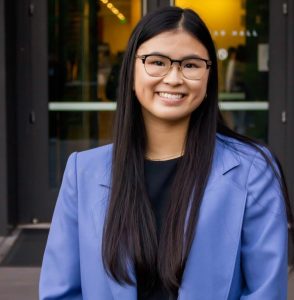
Elsie Rochleau (she/her) is a fourth-year undergraduate student at the Foster School of Business and currently serves as the Student Assistant for the EDI Committee.
“I am passionate about inclusivity and excited to work alongside a dedicated EDI team to create a welcoming environment and host meaningful events. This year’s theme, ‘belonging,’ represents a sense of connection for me. Feeling a sense of belonging means having a safe space where you’re warmly welcomed and can be your most authentic self.”
Tyneshia Valdez
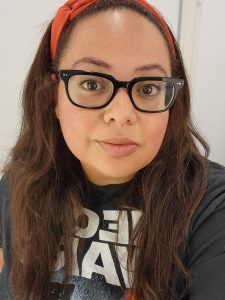
Tyneshia Valdez (she/her) is the AHR Manager in HSPop, a first-generation alumni of UW, and a facilitator of the Be REAL program. She has a passion for promoting diversity, equity, inclusion, and belonging across campus.
“Cultivating belonging is important to me as it’s often a climate that I have to create. I hope that we can all shift to promoting curiosity and understanding of one another so that belonging is not earned but becomes a ‘norm’ in and out of the workplace.”
Rabi Yunusa
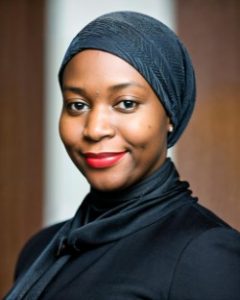
Rabi Yunusa’s (she/her) interests in public and global health stem from her lived experiences of being affected by structural and social violence. Her research and work focuses on the negative role of stigma on the health of people living with HIV and their families, and violence against women and girls particularly in resource limited settings. Rabi collaborates with communities in the USA and Nigeria in bringing Equity, Antiracism and Social Justice lens in her activities.
“Belonging is being comfortable in a space, making the space look like me, being accepted as I am, without editing how I look or be. Belonging is where I feel most comfortable and so able to be most productive. I want all spaces to look like everyone so they can be comfortable and feel like they are accepted the way they are.”
Faculty Spotlight: Catching Up with Dr. India Ornelas
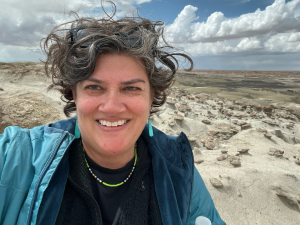
Dr. India Ornelas has dedicated her career to advancing Indigenous health through community-centered, land-based healing practices. Her research spans a wide array of health promotion initiatives—from addressing food insecurity to creating programs that foster resilience and well-being in Indigenous communities. Working closely with the Navajo Nation and other Indigenous groups, Dr. Ornelas brings a deep commitment to food sovereignty and sustainable health practices. This Q&A provides insights into her journey, the inspiration behind her work, and her vision for a future where Indigenous communities lead efforts to reclaim their food systems and promote holistic well-being.
What inspired you to focus your research on environmental and land-based healing, and how has this focus shaped your work with Indigenous communities?
Several years ago, I was invited to collaborate with a team of researchers from New Mexico State University and Fred Hutch Cancer Research Center working with the Navajo Nation to understand how gardening could help address the limited availability of healthy foods. Working on this team, I got to visit Navajo communities and learn more about their relationship to the land and food sovereignty. Many of the people I talked to were invested in sustaining traditions around growing and eating traditional foods.
Which aspect of your work—whether it’s developing interventions for binge drinking or promoting food sovereignty through community gardens—brings you the most fulfillment or excitement?
What is most fulfilling about my work is when I can work collaboratively with communities to create something that helps improve their health. It’s always great to see when health promotion programs continue on in the community after the research is completed.
Could you share any recent projects or initiatives you’re working on that you’re particularly excited about?
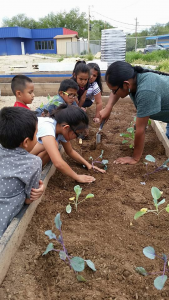
In our work with Navajo communities, we developed a curriculum for elementary school students that focuses on healthy eating and gardening. We tested the curriculum in schools where we also built gardens that teachers could use to teach the students more about plants and growing traditional foods. We found that many of the teachers didn’t know that much about gardening, so we just wrote a grant to the USDA to develop a training for teachers. Our hope is to train teachers in schools serving Navajo students to learn these skills and how to use the curriculum in their classrooms.
Looking ahead, what are your hopes for the future of Indigenous health research, and how do you envision its impact on the well-being of Indigenous communities?
My hope is that our collaborative research can continue to support indigenous communities in obtaining food sovereignty. This means being able to control how their food is produced, distributed and consumed. And that this food is healthy, culturally appropriate and produced in an environmentally responsible way.
India’s commitment to environmental and land-based healing is inspired by the strength and traditions of Indigenous communities, particularly in food sovereignty. Her work with Navajo communities has fostered projects that promote healthy eating, gardening, and cultural education, bringing long-lasting benefits. India envisions Indigenous health research as a pathway to empower communities to reclaim food systems that support health, culture, and sustainability. Thank you, India, for your dedication to this vital work. For more information and additional support, visit India’s faculty profile.